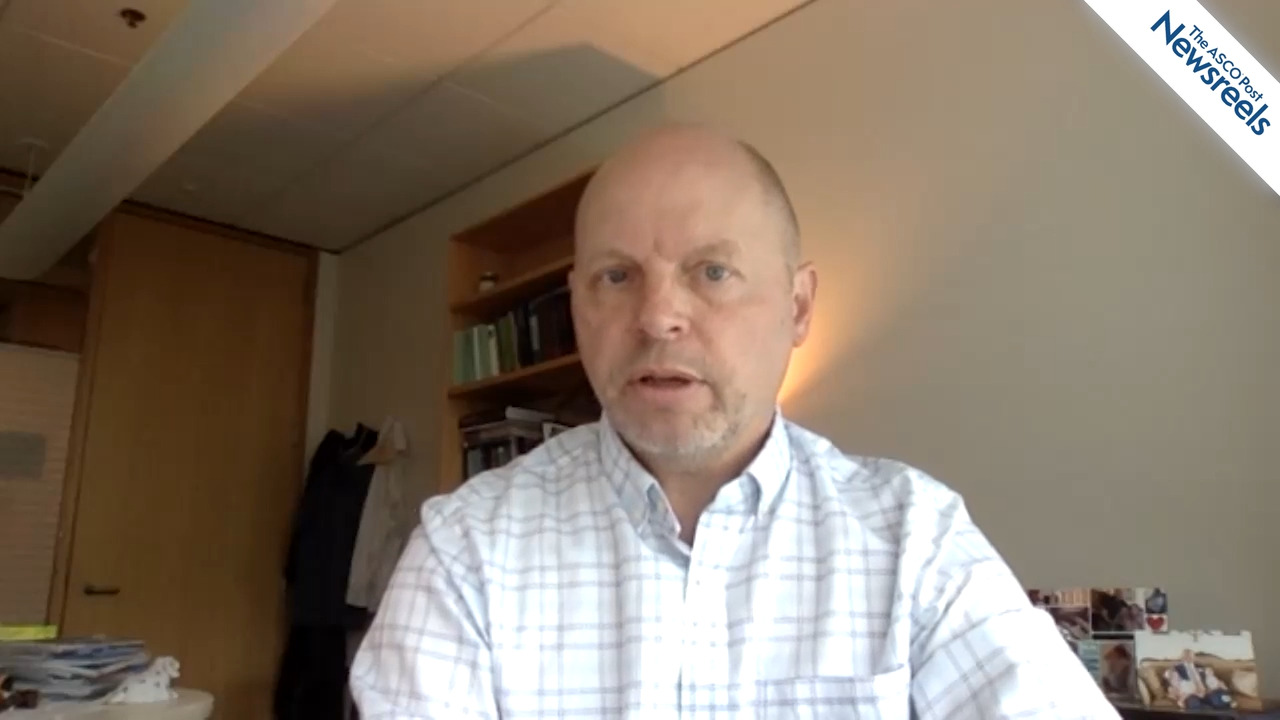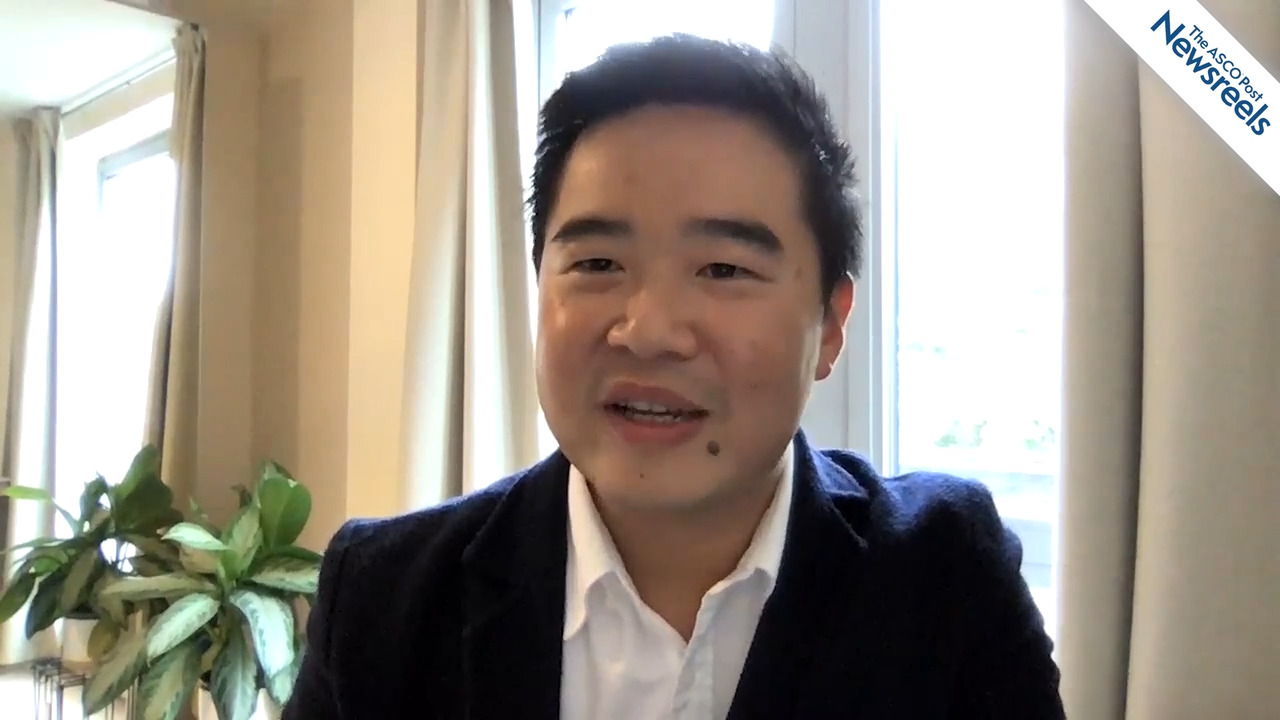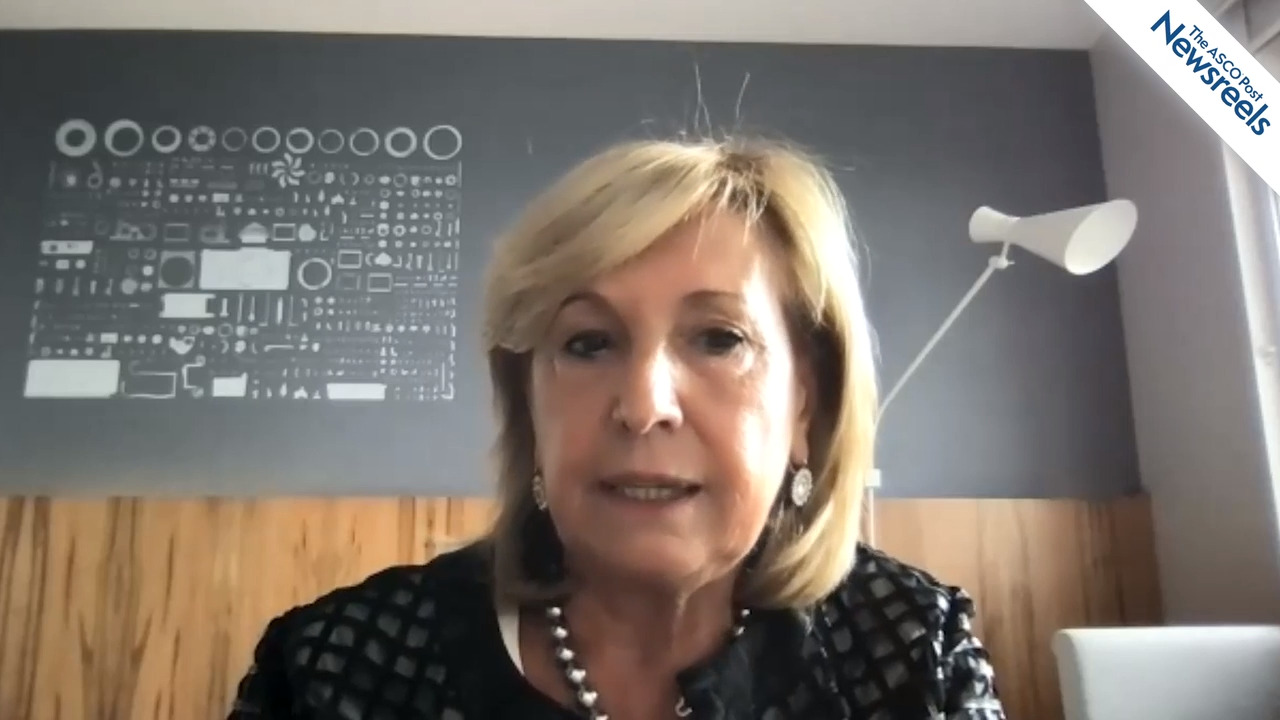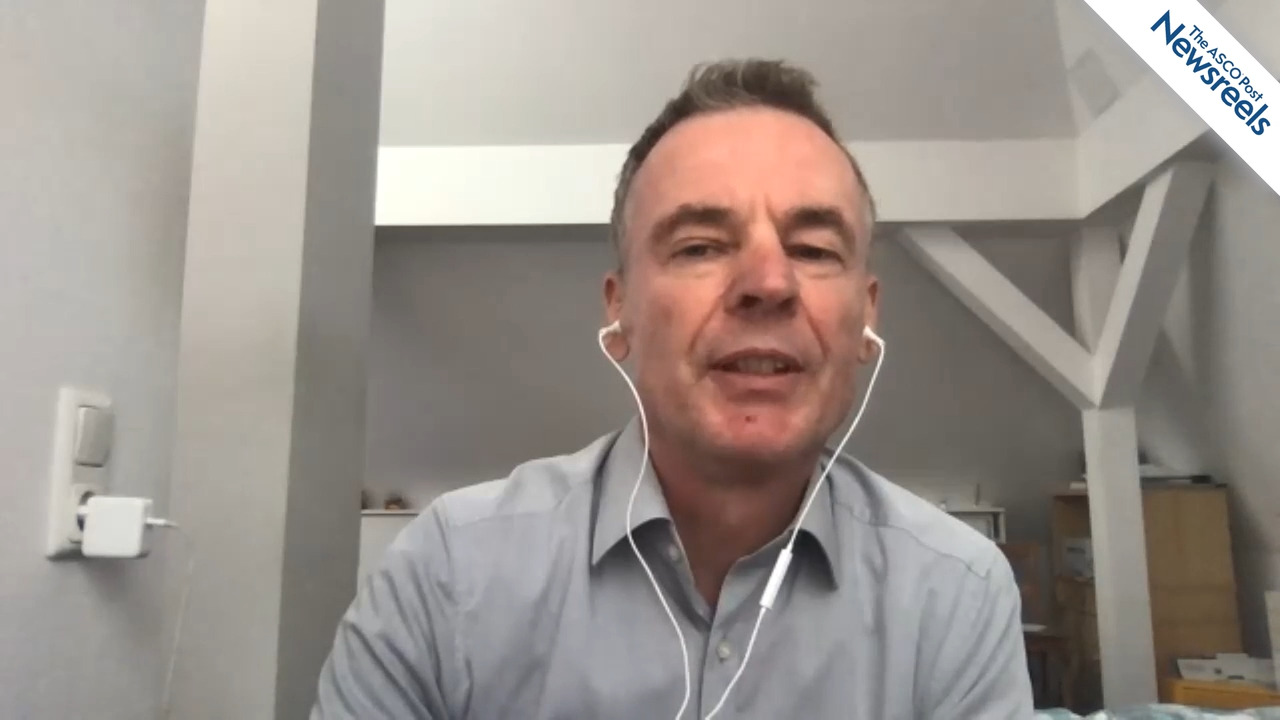Javier Cortés, MD, PhD, on HER2-Positive Breast Cancer: Trastuzumab Deruxtecan vs Trastuzumab Emtansine
ESMO Congress 2021
Javier Cortés, MD, PhD, of Barcelona’s IOB Institute of Oncology, discusses phase III data from the DESTINY-Breast03 study, which support trastuzumab deruxtecan becoming the standard of care for second-line treatment of women with HER2-positive metastatic breast cancer (Abstract LBA1).
The ASCO Post Staff
Joseph M. Unger, PhD, of Fred Hutchinson Cancer Research Center, discusses findings from his study of the National Cancer Institute’s Clinical Trials Network, which has conducted publicly funded cancer research for more than 50 years. The substantial gains in life years for patients with cancer, he says, supports the critical role of government-sponsored cancer research (Abstract 1503O).
The ASCO Post Staff
Jonathan Lim, MBBS, MRCP, of Christie NHS Foundation Trust and the Francis Crick Institute, discusses results of an ESMO survey, which showed that the risk of poor well-being, distress, and burnout has continued to rise since the onset of the COVID-19 pandemic, despite improved job performance and sustained resilience. Those most at risk, he says, are women aged 40 years and younger (Abstract 561O).
The ASCO Post Staff
Nicoletta Colombo, MD, of the Istituto Europeo Oncologico, discusses phase III results that showed improvements in progression-free and overall survival with a combination of pembrolizumab plus chemotherapy, compared with placebo and chemotherapy, for patients with persistent, recurrent, or metastatic cervical cancer. These benefits were seen regardless of PD-L1 expression and concomitant bevacizumab use, suggesting that pembrolizumab plus chemotherapy, with or without bevacizumab, may be a new standard of care for this population (Abstract LBA2).
The ASCO Post Staff
Thomas Powles, MD, PhD, of Queen Mary University of London, discusses phase II results from the NORSE study, which showed that the kinase inhibitor erdafitinib plus the monoclonal antibody cetrelimab produced meaningful responses in cisplatin-ineligible patients with first-line metastatic or locally advanced urothelial carcinoma and fibroblast growth factor receptor (FGFR) alterations (Abstract LBA27).
The ASCO Post Staff
Dieter Hörsch, MD, of Germany’s Central Clinic in Bad Berka, discusses phase III results from the SPINET trial, the largest prospective study to date of the somatostatin analog lanreotide autogel. The study suggests that this agent may prove to be an appropriate treatment option for patients with somatostatin receptor–positive bronchopulmonary neuroendocrine tumors, especially typical carcinoids (Abstract 1096O).





